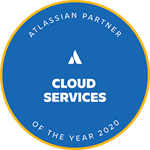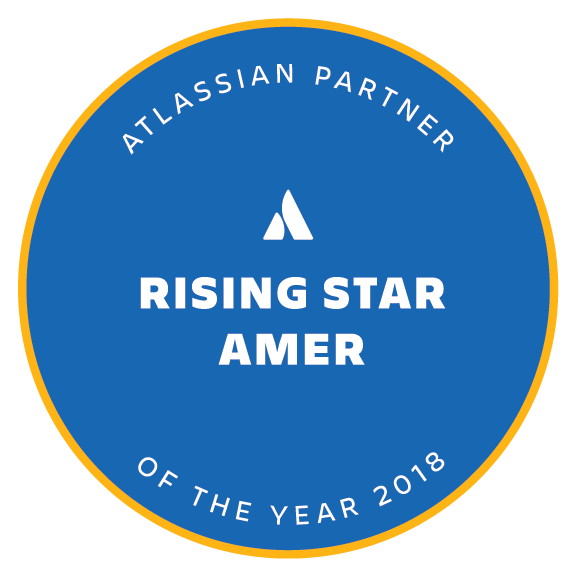
Migrate the last remaining on-premise application to the cloud due to a company-wide initiative.
The client had a large dependency on marketplace apps which makes the migration much more complex.
This complex Cloud migration was not only seamless and pain-free, but it gave our client a ROI of 754% to be realized in 4.8 months.
Social Good Technology
One of the world’s largest and fastest-growing Social Good Technology company’s initiative to move to the cloud was winding down, with one last server environment to go. The Jira Software Server and Confluence Server instances for the Cyber Grant department were all that remained. With the Server end-of-life on the horizon and the company-wide cloud initiative, it was clear it was time to migrate.
This existing client approached E7 with their need to migrate. As a part of our Atlassian Cloud Migration Strategy and Process, we did a thorough assessment of their Server environment. We found that the Cyber Grant department had a heavy dependency on automations. These automations were mostly accomplished via the use of a wide variety of marketplace apps.
Migrating from Jira Server to Cloud can be a complex process on its own, but having a large number of marketplace apps will contribute to this complexity.
You may be wondering - why the number of marketplace apps add so much complexity? Aren’t there Cloud versions available and all that needs to be done is migrate the Server data over?
To start, there could be compatibility issues between Server and Cloud versions. Some apps may not have Cloud versions available, or they might have different features and capabilities in the cloud environment. Each marketplace app may have its own dependencies and compatibility requirements as well, so it’s very important to ensure all apps are compatible with the new cloud platform.
For this organization and one particular app Jira Workflow Toolbox, only about 33% of the functionality would migrate to the cloud. We overcame this particular challenge by re-creating and configuring this missing functionality, to ensure a seamless user experience post-migration.
There can also be data migration challenges as marketplace apps often store data within the Jira instance. Migrating this data to the cloud can be complex, especially if the data structure or storage mechanisms differ between the server and cloud environments. Ensuring a smooth transfer of data without loss or corruption may require custom solutions for each app.
During these deep dives for the required marketplace apps, third-party vendor support can become a crucial piece of the puzzle. Communication and coordination with each app vendor can often be a challenge, but also, the vendors may need to provide cloud-compatible versions of their apps or offer guidance on the migration process. Coordinating these efforts can be time-consuming, especially if there are many different vendors involved.
Lastly, organizations can often have heavily customized Jira instances with various configurations and workflows. Marketplace apps may be integrated into these configurations, and ensuring that these customizations transfer seamlessly to the cloud can be challenging.
This client experienced all of the aforementioned issues, which definitely categorizes them as a complex Cloud Migration case.
The client had a number of apps required for this migration and E7 needed to ensure all would migrate to the cloud or find alternative apps with the same functionality. Some of these apps in question included Adaptavist Script Runner, Capture for Jira, Create on Transition for Jira, Email This Issue, Jira Miscellaneous Workflow Extension, Jira Workflow Toolbox, JSU Automation Suite, Tempo Timesheets, and two integrations with QTest and Zendesk.
After a thorough assessment of each individual app, E7 determined all would have a migration path to the cloud, but not without some potential struggles.
Team Calendar would be unable to migrate automatically with Atlassian’s Confluence Cloud Migration Assistant (CCMA) tool, and would require scripts and manual effort to migrate.
Tempo Timesheets required a large number of manual efforts as well in ways of CSV prep work, API configuration, PowerShell scripts and post-migration cleanup.
When migrating Adaptavist Script Runner, the cloud version did not support the use of Behaviors and they were not migrated. E7 was able to find a plugin app, Behaviors for Cloud by Adaptavist to ensure no functionality was lost.
Lastly, Email This Issue had limitations during the migration. No filtering for project data is available, Mail Handlers had limited in functionality, the Default event type was unable to be migrated and workflow post-function settings were not migrated at all.
E7 engineers were able to develop a plan for each app, meticulously documenting each path and each potential hurdle to ensure a smooth and seamless migration for the client.
This project presented unique challenges due to the heavy dependency on marketplace apps and their individual migration requirements. Our engineers had to develop a unique strategy for each and ensure all potential obstacles were accounted for. The team did a great job working internally, with app vendors and the client to ensure all details were accounted for. This migration was complex at times, but the client provided great partnership and support throughout and we’re glad we were able to successfully move them to cloud.
Testing is an essential part of every Cloud Migration. However, with the large number of marketplace apps this client has, thorough testing becomes crucial. Ensuring that all apps work seamlessly in the cloud environment, both individually and in conjunction with each other, requires extensive testing. This includes not only functional testing but also performance and integration testing.
User Training and Adaptation was also a key factor to success once the migration was complete. Users were accustomed to specific features or workflows provided by the marketplace apps in the Server environment. Migrating to Cloud required users to adapt to changes in functionality or learn new ways of using the apps. Proper training and communication was essential to ensure a smooth transition.
E7’s partnership and expertise in Cloud Migrations not only made the transition to Cloud seamless and pain-free, but it also allowed our client's internal teams to focus on the work that matters most to their organization. With this being the third engagement between the organization and E7, a partnership has grown and is still continuing today with ongoing support and new engagements.
Organizations large and small must keep in mind that while things may seem straightforward on the surface, there can be a level of complexity that can come with migrating Jira products to the cloud. These complexities may arise from compatibility issues, data migration challenges, extensive testing requirements, vendor coordination, user adaptation, and customization considerations.
As the end of life for Atlassian Server approaches, organizations must consider the benefits of migrating to Atlassian Cloud. With E7 Solutions' Atlassian Cloud Migration Packages, the transition becomes seamless and cost-effective. By embracing the power of Atlassian Cloud, you can unlock the true potential of your organization, enhance collaboration, increase efficiency, and ensure the security of your data. Trust in the expertise of E7 Solutions, an Atlassian Solution Partner, to guide you on this transformative journey to the future of cloud computing. Don't wait until it's too late - let E7 be your guide with Atlassian Cloud Migration Packages to secure the success of your business.






.png?width=300&height=115&name=New%20Project%20(1).png)

